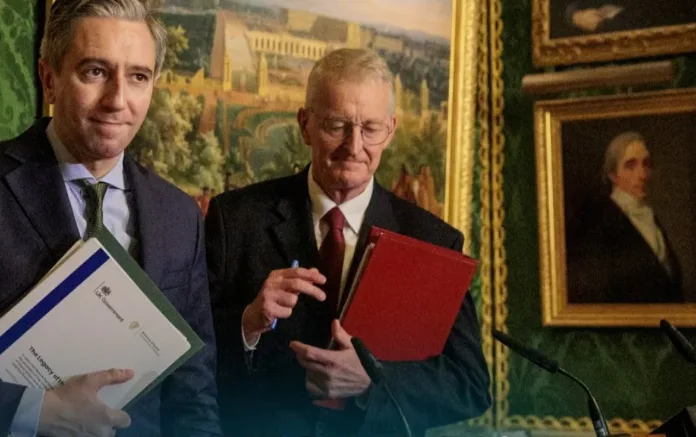UK and Ireland scrap law that blocked inquests, civil suits; promise judge-led hearings to answer years of grief
LONDON / DUBLIN: The UK and Irish governments have torn up the controversial Legacy Act and replaced it with a sweeping new framework aimed at tackling the unresolved horrors of Northern Ireland’s Troubles.
Announced at Hillsborough Castle, the plan restores the rights of families long denied the chance to pursue justice. Inquests will return, civil cases will reopen, and the ban on legal action that fuelled years of anger will finally be lifted. For victims’ groups, this marks a dramatic shift in how two governments deal with decades of bloodshed.
Central to the reform is the creation of a Legacy Commission, empowered to investigate killings during the Troubles. Unlike the old Independent Commission for Reconciliation and Information Recovery, this new body will carry the authority to pursue prosecutions. Its task is to unearth truths buried for generations and confront those who may still be held accountable.
A parallel structure, the Independent Commission on Information Retrieval, will focus on uncovering details for families who simply want answers. Judge-led public hearings will place victims’ relatives at the heart of proceedings, giving them a voice that the Legacy Act silenced.
The most divisive element of the previous law — conditional immunity for soldiers and paramilitaries — has been scrapped. No longer will perpetrators be able to shield themselves from prosecution by offering limited cooperation. Instead, the system will prioritise transparency and accountability, with restrictions on sensitive information applied only in rare circumstances.
To ease concerns from veterans, the framework introduces safeguards. Elderly or vulnerable witnesses will not be forced to travel to Northern Ireland to give evidence. Conflict-of-interest rules and independent oversight panels will aim to protect the integrity of investigations.
Across the border, Ireland has pledged its own commitment. An Garda Síochána will form a dedicated legacy unit to investigate unresolved cases, while €25 million has been set aside to support victims and families as they engage with the process.
Reaction to the announcement has been mixed. Survivors’ organisations and campaigners hailed the decision as long overdue, calling it a chance for long-buried truths to finally surface. Yet critics voiced suspicion. Unionist politicians denounced what they view as Irish overreach, and some veterans’ groups warned of endless legal jeopardy for soldiers decades after the conflict ended.
For Hilary Benn, the Secretary of State for Northern Ireland, the framework represents what he described as “unfinished business” from the Good Friday Agreement. For Irish Tánaiste Simon Harris, it is an overdue opportunity to centre victims in the pursuit of truth.
What remains clear is that this new deal reopens wounds that many believed had been politically stitched shut. But in reopening them, it may also deliver what victims and their families have demanded for decades: justice, accountability, and recognition of pain that has never faded.
